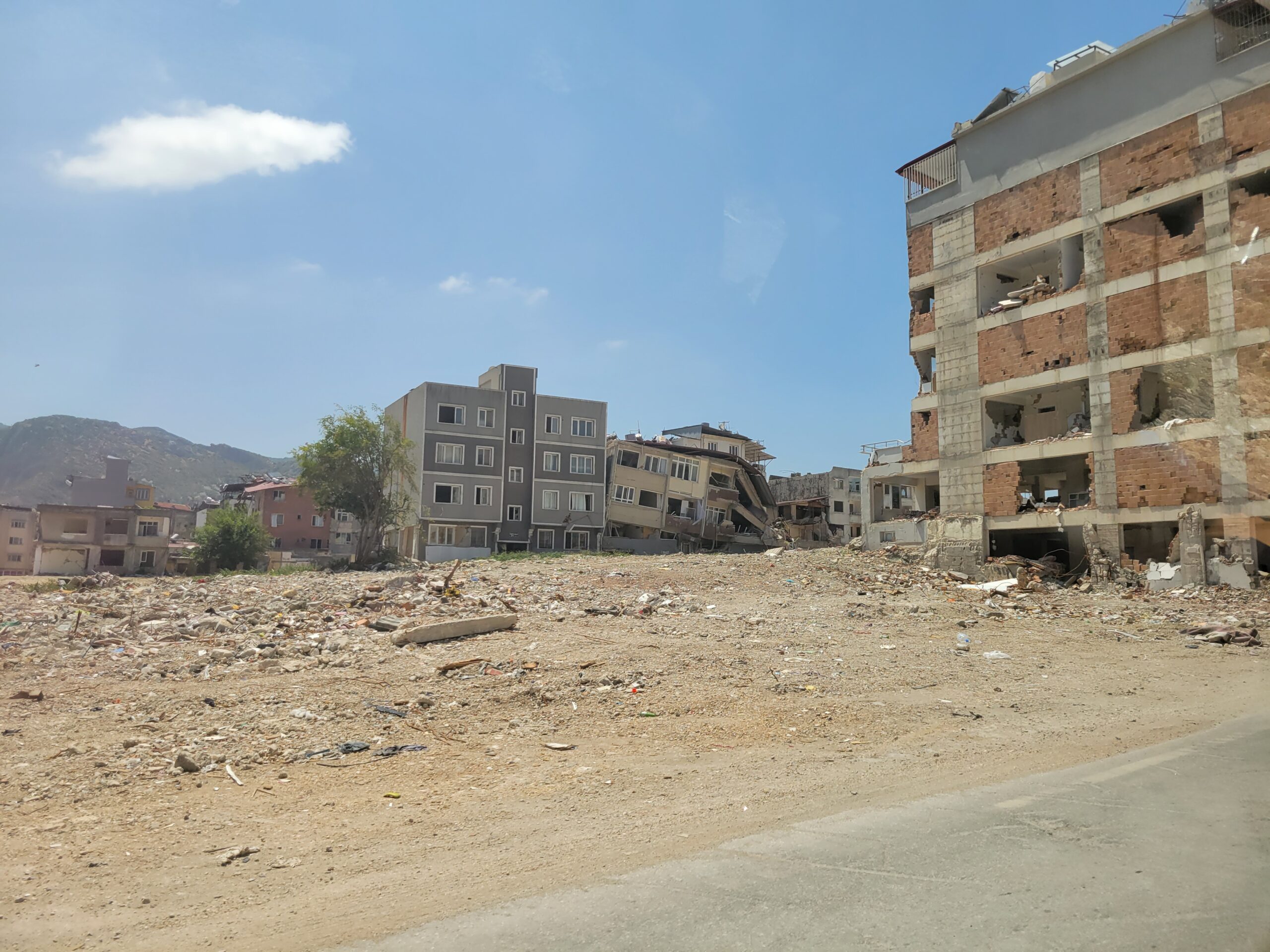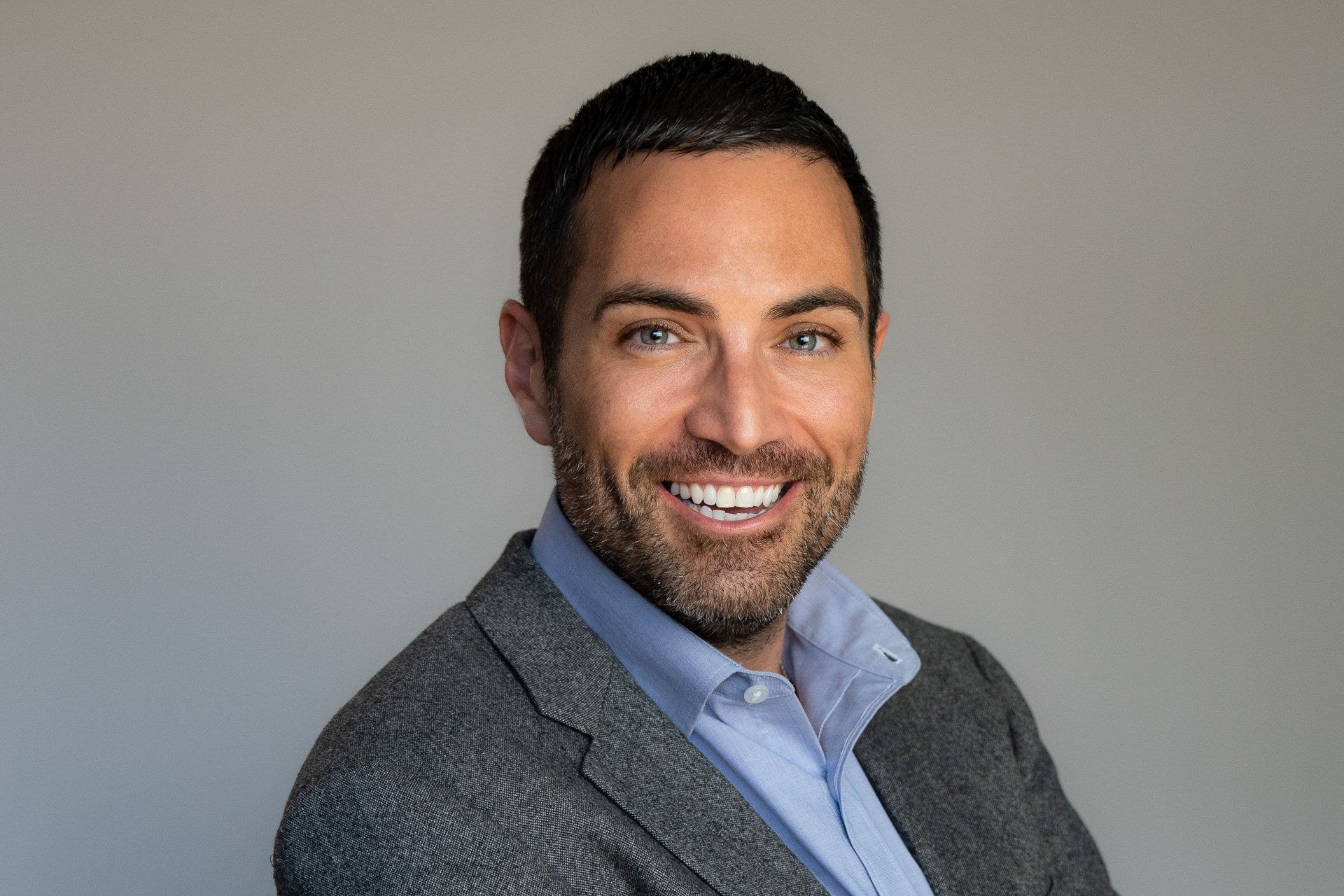Announcing grants to support Turkey-Syria earthquake recovery

Give now to support immediate humanitarian needs but also invest in long-term recovery.
This was a recurring message from panelists in a webinar hosted by the Center for Disaster Philanthropy (CDP), A layered disaster: Supporting long-term recovery in Turkey and Syria.
At CDP, we did just that in the aftermath of the Turkey-Syria earthquake: supported immediate needs with an initial round of grants, while also pausing and waiting six months until the chaos of the immediate relief phase had passed, and the rate of new funding for the earthquake was in decline. Only then did we have a clearer understanding of the true extent of the recovery needs on which we could base our grantmaking strategy.
Along with my colleague, Adrian Greer, I traveled to the affected region in Turkey to conduct what we at CDP refer to as “shoe-leather philanthropy.” That is, going to meet affected communities, NGOs, UN agencies, local entrepreneurs, businesses and government officials where they are and hearing first-hand what the most critical unmet needs are, what challenges persist, and what opportunities exist for CDP to best support local partners and communities on their road to recovery from the devastating impacts of the massive earthquake that shook the region.
A layered and complex disaster
On Feb. 6, a magnitude 7.8 earthquake devastated southern Turkey and northern Syria, a region already destabilized by the more than 10-year-old Syrian conflict. It was followed approximately nine hours later by a magnitude 7.5 earthquake around 59 miles to the southwest. Before the quakes, more than four million people in northwest Syria, primarily women and children, required humanitarian assistance.
The earthquakes killed more than 55,000 people in Turkey and Syria, though this number is considered vastly underestimated.
In addition to the deaths, the earthquake displaced almost 6 million people. Officials estimate that there were around 800,000 newly disabled people in Turkey and roughly the same amount in northwestern Syria as a result of the earthquakes.
Then and now: the impact of the earthquakes
In Turkey, the most affected provinces are Adana, Adıyaman, Diyarbakır, Elazıg, Gaziantep, Hatay, Kahramanmaras, Kilis, Malatya, Osmaniye, and Sanlıurfa, where approximately 14 million people reside, including 1.8 million Syrian refugees.
These are all areas I am familiar with. I moved to Turkey in 2012 and I worked in the region for many years at the outbreak of the Syrian conflict that displaced millions of Syrians into neighboring countries.
Hatay is a place of great historical, cultural and religious significance. It was home to six UNESCO World Heritage sites. It’s a place I vividly remember from when I last visited in 2019. I had heard that whole cities were flattened by the earthquake, including the historical city of Antakya, located in Hatay province, where I worked and spent a lot of time leading the Syrian refugee and IDP humanitarian responses. I heard this, but nothing prepared me for what I found when I returned to the area. Antakya was simply not there anymore. It was heart-wrenching. The scale of the devastation and the extent of the recovery needs immediately became apparent.
If you want a more in-depth understanding of the earthquake and its impact, I encourage you to read our profile and watch the webinar I moderated, featuring expert panelists who offered extremely valuable insights and practical advice for donors.
CDP’s priorities for recovery
When CDP looks at making disaster-related investments, we do so through multiple lenses, including pre-existing systemic issues that lead to vulnerability, equity, immediate response, long-term recovery, complexity, intersectionality and localization.
We also recognize our position within the disaster ecosystem and lean into our unique role as philanthropy. This includes making it easy for our grantee partners, remaining open and flexible, seeding pilots and innovation, providing leverage for other funds, taking risks, and funding programs that other donors can’t or won’t.
Check out our fund page for detailed information about our priority funding focus areas in Turkey and Syria, and cross-cutting issues we prioritized in both countries.
Funding local groups
Community-based organizations are often the first ones stepping up when disaster strikes. In Turkey, there are Turkish and Syrian refugee-led groups that can be depended upon and need investment, so the majority, 82%, of our funding went directly to local groups led by and representing the populations they serve.
Taking a two-track approach: Grants from the CDP Turkey & Syria Earthquake Recovery Fund
While acknowledging the desire to support immediate response efforts when we witness scenes of destruction and human suffering, we always encourage donors to adopt a “Yes and” approach to their giving. This means “yes” to meeting the immediate needs as able “and” setting aside resources specifically for long-term recovery.
Below, you’ll find a few grants CDP made in the immediate aftermath of the earthquake where we felt that CDP (and philanthropy as a field) had a unique value add role because we could take risks others can’t, invest in programs without having perfect information, move quickly and decisively and, critically for partners, remain flexible and adaptive to the rapidly changing circumstances partners were finding on the ground.
In the immediate aftermath, CDP made the following grants:
- Hayata Destek Dernegi (Support to Life) received a $750,000 grant (April 1, 2023 – May 31, 2024) to work with earthquake-affected communities in Turkey to identify and implement 90 community-identified projects through the Survivor and Community-led Response (SCLR) approach. The CDP team visited project sites and monitored the impact of microgrants in local affected communities.
- MapAction received $40,000 from CDP’s Turkey & Syria Earthquake Fund to provide essential maps and data insights after the earthquakes to assist partners (UNDAC & WHO) in responding to the humanitarian emergencies in Turkey and Syria.
- Building Markets received $250,000 to provide marginalized refugee entrepreneurs with tools and financial recovery plans to restart their small businesses, supporting the economic recovery of their households and their vulnerable affected employees. CDP visited some beneficiaries/program participants and heard first-hand accounts of the impact of funds on local and international businesses.
After our visit to the region to meet with local communities and leaders, we made the following additional recovery grants:
- Aman Project received a $199,680 grant to support vulnerable earthquake-affected LGBTQIA+ refugees in Turkey with temporary shelter, cash assistance and support accessing services to ensure their basic needs are met and they are able to recover their lives and livelihoods.
- Association for Social Development and Aid Mobilization (ASAM) received a $400,000 grant to promote inclusive disaster recovery, enhance community resilience, provide comprehensive psychosocial support to refugees with disabilities, their families, and caregivers, and facilitate mobility for individuals with disabilities affected by the earthquake.
- Beyaz Baretliler DerneğI (White Helmets) received a $1,000,000 grant to rehabilitate a major supply road running from the Jarablus cross-border point between Turkey/Syria, and develop a prototype for an innovative autonomous mine detection and removal system, enabling quicker and safer recovery from the earthquake impact for vulnerable populations in northwest Syria.
- Guardians of Equality Movement (GEM) received a $200,000 grant to combat the psychological and economic impact on the most vulnerable earthquake-affected LGBTQIA+ populations in southeast Turkey and northwest Syria and build their long-term resilience.
- Hayata Destek Dernegi (Support to Life) received an additional $295,775 grant to enhance the resilience of people with disabilities affected by the earthquake by supporting local disability-led organizations in Hatay who will create a community-run center and offer static and mobile psychosocial support and physical rehabilitation services.
- HelpAge USA received a $153,000 grant to hire an age-inclusion advisor to provide high-level technical advice and leadership to the Disability Inclusion Task Team, as well as the wider Türkiye Refugee and Earthquake Response and Recovery, on lifting up the voices and upholding the rights of older people in all their diversity.
- Menekşe Organizasyon Sosyal Yardimlaşma Ve Dayanişma Derneği (Violet Organization of Relief and Development) received a $350,000 grant to support vulnerable earthquake-affected communities, especially women and youth, to rebuild their livelihoods and resilience following the devastating earthquake in Syria.
- Relief International (RI) and partner MUDEM received a $750,000 grant to strengthen systemwide capacity to improve access to specialized healthcare and protection services in earthquake-affected communities of Turkey for persons with disabilities and their caregivers, thereby fostering inclusivity.
- Sened Derneği received a $750,000 grant to provide multi-sectoral and integrated shelter, protection, education and livelihood support to the most vulnerable earthquake-affected individuals, with a particular focus on children, the elderly and people living with disabilities.
- Toplum Kalkinma Derneği (BINAA Organization for Development) received a $548,760 grant to reconstruct the marketplace in Azaz, creating a vibrant, inclusive hub for commerce, trade, and entrepreneurship, fostering economic growth, community development, and social cohesion post-earthquake.
The CDP Turkey & Syria Earthquake Recovery Fund allocates your donation to where it is needed most to address medium- to long-term recovery from the impacts of the earthquake. Learn how your gift to the fund could benefit communities devastated by the 2023 Turkey-Syria earthquakes.
